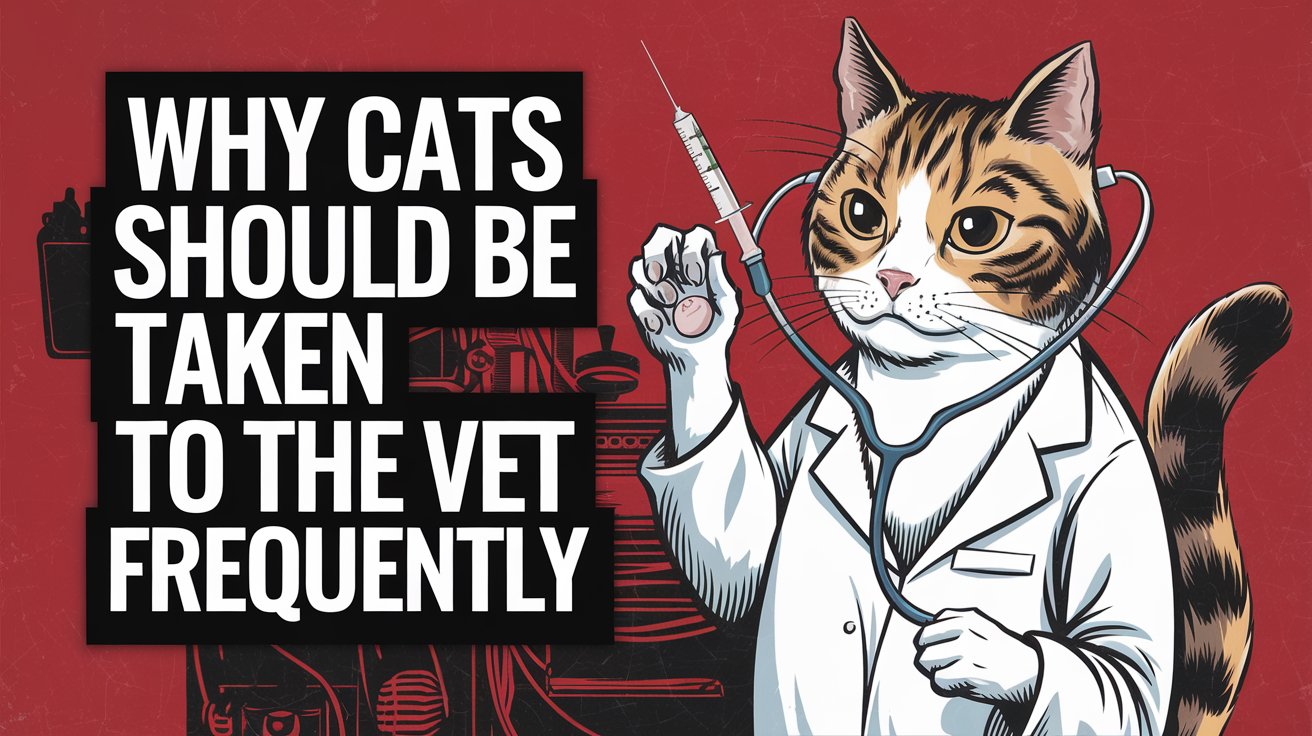Cats are a very independent animal and can some times give the impression that they do not need their owner at all. However, they are loyal to their owners but need to see the vet frequently in order to remain healthy. Well, people must understand Why Cats Need Frequent Vet Visits checkups which are very important as they otherwise will prevent diseases and identify all possible complications at an early stage of development. Here is Why Cats Should Be Taken to the Vet Frequently!
Why Cats Need Frequent Vet Visits: The subsequent early identification of health problems
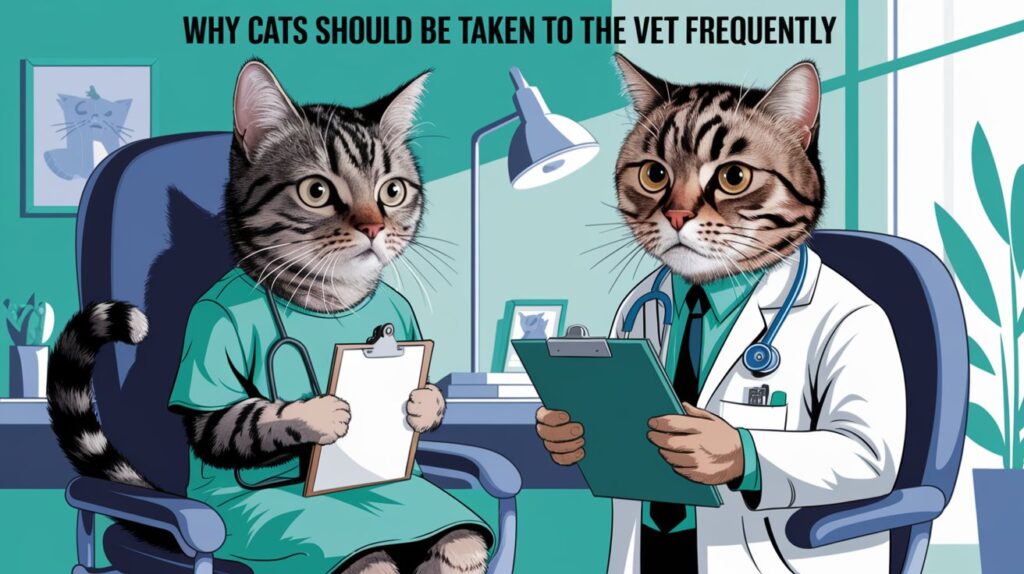
Cats can be very reserved cats especially in disguising pain and irritability. The symptoms might be hidden until a given disease reaches a certain progressive stage. Regular vet visits help detect:
Dental diseases
Kidney problems
Diabetes
Why Cats Need Frequent Vet Visits: Thyroid disorders
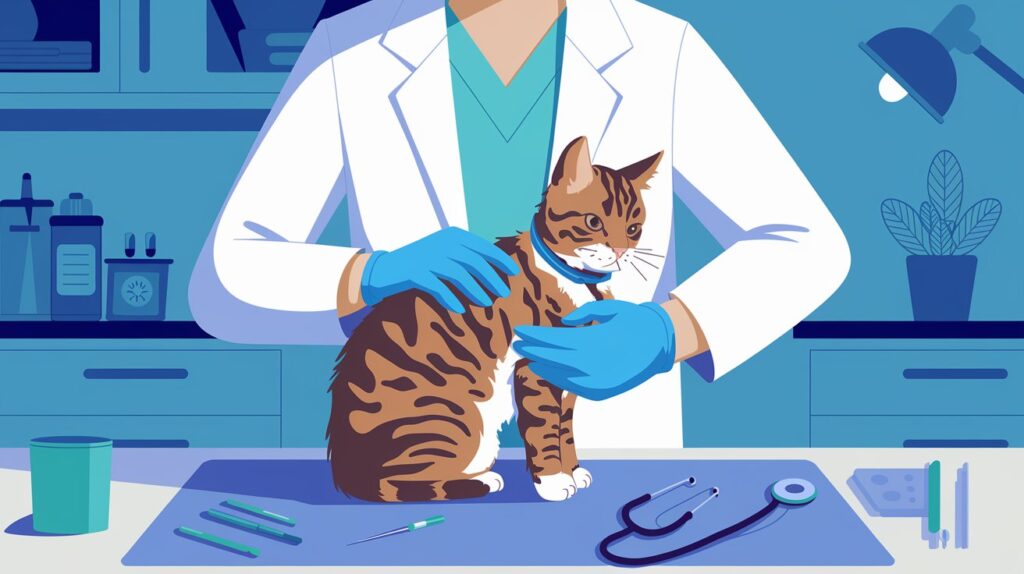
Cats needs to have Proper screening which can enable an early intervention that can enhance the results since your cat will not have to endure much pain.
Preventive Care to Make Your Cat Live a Healthy Life
For your cat health, Wilford stresses on importance of preventive health care at SD Veterinary Clinic. During a checkup, your vet will:
Why Cats Need Frequent Vet Visits & Administer vaccinations
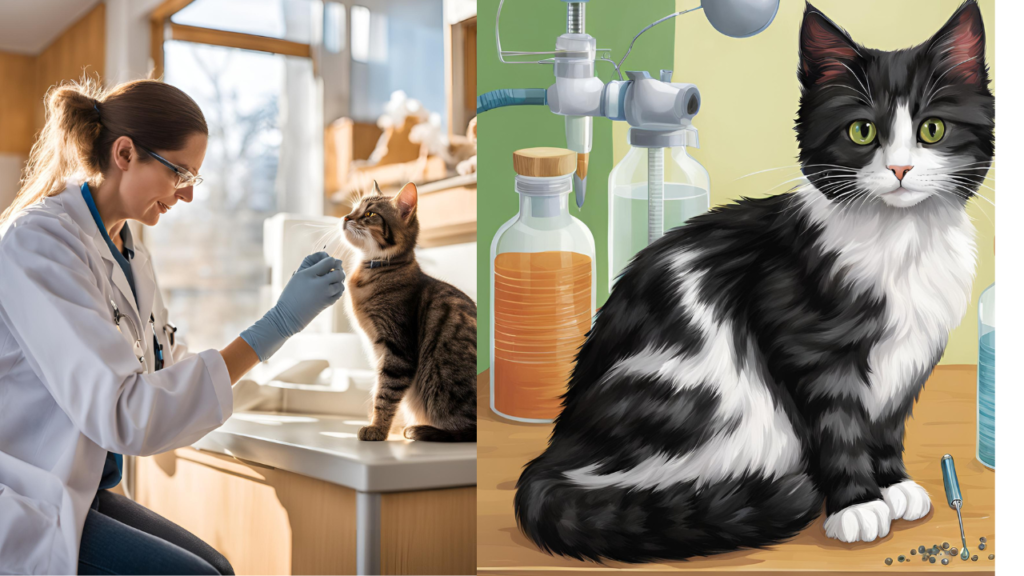
Carry out the following parasitology; Fleas, ticks, and worms.
Conduct routine blood tests
Ensure weight and general health of the consignment
These steps are used to guard your cat against these diseases hence ensuring they maintain good health.
Maintaining a Healthy Weight

Obesity for cats has become a major issue and has been extensively documented. Excess weight can lead to:
Diabetes
Joint problems
Heart disease
Your vet will weigh your cat and discuss your cat’s diet and activity levels. Well due check-ups help keep your cat a healthy weight so it will not gain the excess weight that may lead to its health complications.
Dental Health Monitoring

Dental issues are, however, prevalent in cats though in most cases they go undetected. During checkups, your vet will examine your cat’s teeth and gums for:
Tartar buildup
Gum disease
Broken or missing teeth
Oral diseases therefore can lead to such things as pain, infection and sometimes broader health conditions. These problems can however be avoided by visiting the dentist for check up and cleaning of the teeth.
Prevention and control of some Parasites
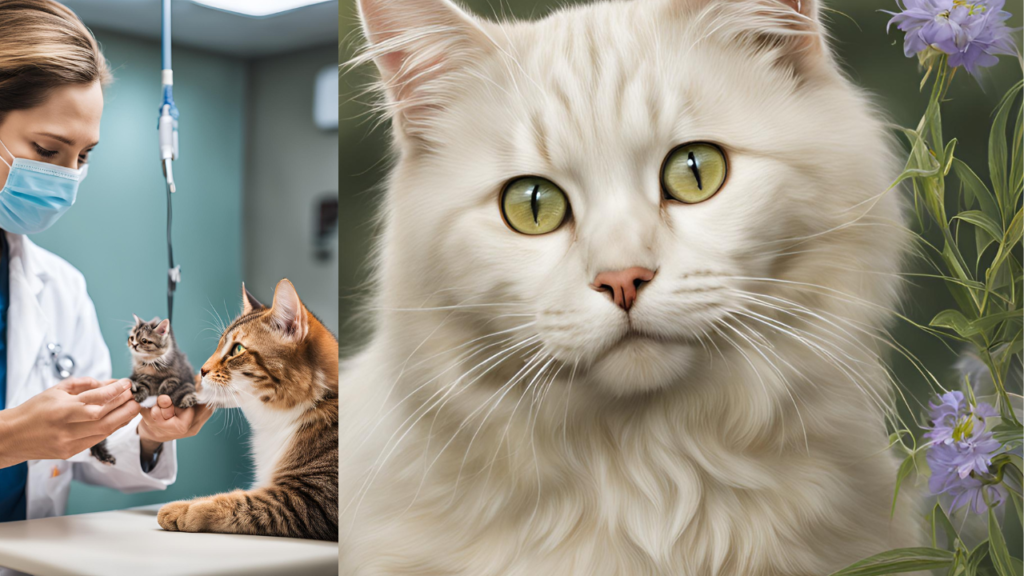
Some of the basic diseases that your cat might be diagnosed with include; Flea, ticks and Worms diseases . They can cause:
Skin irritation
Anemia
Prevention and control of parasite diseases
Some diseases causing organisms include fleas, ticks, and worms, which can affect your cat’s health. They can cause:
Skin irritation
Anemia
Digestive issues
Your vet will advice you on proper preventatives depending on the cat’s lifestyle. The parasites are well monitored during checkups to ensure that they are under control.
Vaccination Updates

Vaccinations protect your cat against serious and sometimes fatal diseases. Your vet will ensure your cat’s vaccinations are up to date, including:
Rabies
Feline distemper
Feline leukemia
It is important to keep to the recommended vaccinations for kittens and for outdoor cats too.
Chronic Disease and Aging
When cats grow older they develop various long term illnesses such as arthritis or kidney disease. Regular vet visits help manage these issues through:
Medication adjustments
Specialized diets
Monitoring progression
Your veterinarian will be able to give you recommendations about how best to care for your cat in this age to keep him/her comfortable and happy.
Behavioral Assessments

This further affirms that changes of behavior are signs of health. Your vet can evaluate:
Increased aggression
Excessive grooming
Litter box issues
This is because during checkups behaviors are assessed for any medical or emotional conditions that would be undisclosed.
Building a Better Relationship with Your Vet

A good relationship with both you, your cat and the veterinarian is established over time through visits. Well, it all guarantees that your cat receives special attention at all times. Your vet gets an opportunity to get acquainted with your cat in detail. So, that he knows when any small change occurs.
Regular check-up and visits to the veterinarian are very important in a cat’s life span. But how often do cats need to see the vet?
The frequency of vet visits based on your cat’s age and health:
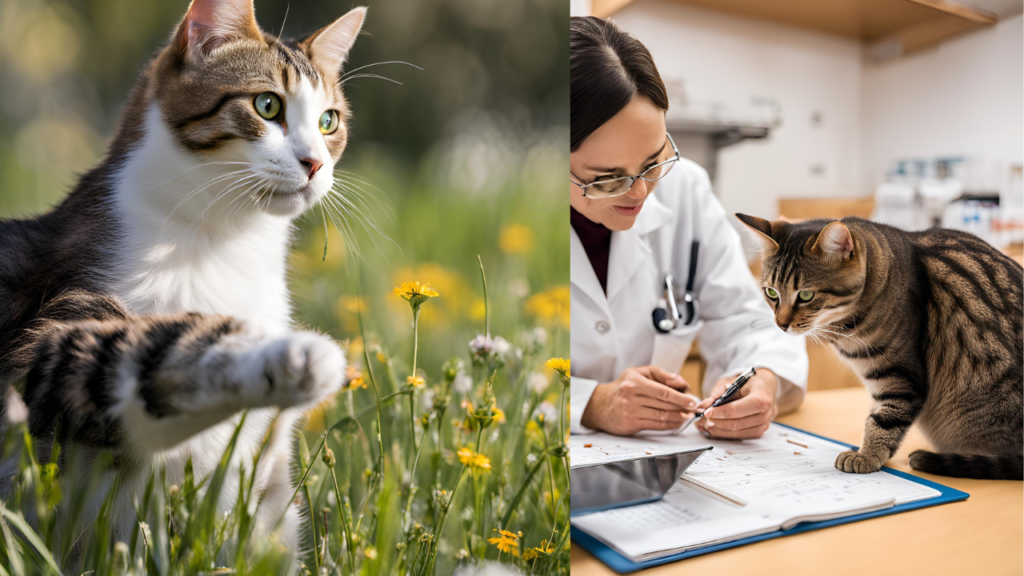
Kittens: Monthly visit thus health promotion and vaccinations until complete immunization.
Adult cats: Annual checkups if healthy
Senior cats (7+ years): Every six months as expert recommend or when one ages.
It’s always important to follow the advice that you have been given specifically for your kitten by your veterinarian.
Symptoms That Cause Worry and Require the Services of a Vet.Net.
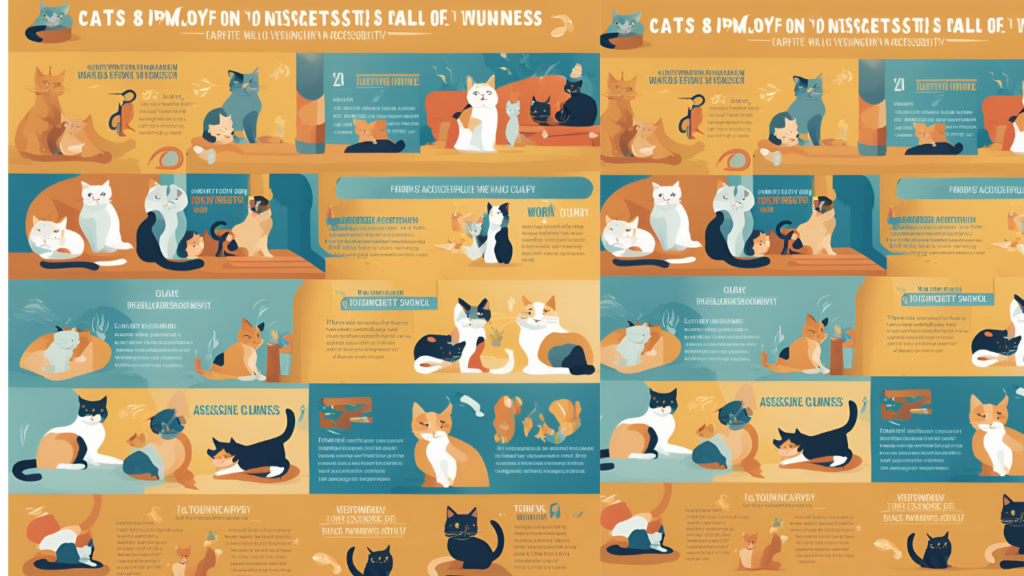
What may suggest you need an emergency vet;
In addition to routine checkups, watch for signs that your cat needs immediate attention:
Loss of appetite
Vomiting or diarrhea
Difficulty breathing
Sudden weight changes
Unusual lethargy or hiding
If cat develops these symptoms, do not wait for a scheduled visit and call your veterinarian immediately. The earlier the specialize care is sought the better the chances of reversing the disease.
Conclusion
It is completely advisable to take your cat for a vet check up from time to time in order to have it physically checked. They assist in identifying disease signs at an early stage, in offering health checks, as well as in making your cat happy and healthy to the end of its life expectancy. By including regular check ups you are increasing your cat’s chances of leading a healthy life.
Frequently Ask Questions
How often should I take my cat to the vet?
Kittens should visit the vet every few weeks for vaccinations and check-ups. Healthy adult cats should have annual check-ups, while senior cats (7+ years) should go every six months for early disease detection.
Why is it important to take my indoor cat to the vet?
Even indoor cats can develop health issues like obesity, dental disease, or hidden illnesses. Regular check-ups help detect problems early before they become serious.
What are the common health issues a vet can detect early?
Routine vet visits can help diagnose issues like kidney disease, diabetes, dental infections, parasites, and heart disease before symptoms become severe.
What are signs my cat needs an urgent vet visit?
Sudden weight loss, vomiting, diarrhea, breathing difficulties, lethargy, changes in appetite, or unusual behavior are red flags that require immediate medical attention.
How can frequent vet visits improve my cat’s lifespan?
Preventive care helps catch illnesses early, manage chronic conditions, and ensure proper nutrition and dental health, all of which contribute to a longer, healthier life.
Do cats really need vaccinations if they stay indoors?
Yes! Core vaccines protect against deadly diseases like rabies, feline leukemia, and distemper, which can still pose a risk even for indoor cats.
